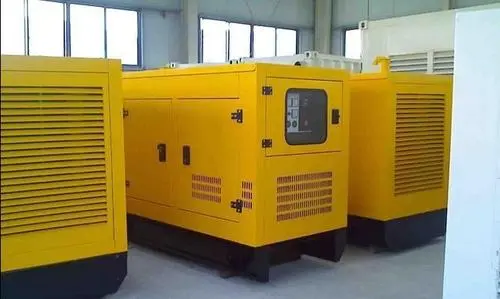Introduction
Diesel generators play a crucial role in providing backup power during emergencies and serving as a primary power source in remote locations. To ensure the performance and reliability of diesel generators, type testing is conducted to validate their compliance with industry standards and regulations. This article explores the importance of type testing for diesel generators, the testing procedures involved, and the benefits it provides in ensuring the quality and reliability of these critical power sources.
Importance of Type Testing for Diesel Generators
Type testing is a critical process that involves subjecting diesel generators to a series of rigorous tests to evaluate their performance, efficiency, and compliance with industry standards. The primary objective of type testing is to ensure that diesel generators meet the specified technical requirements and are capable of delivering the required power output under various operating conditions.
One of the key reasons why type testing is essential for diesel generators is to verify their compliance with relevant standards and regulations. Diesel generators are commonly used in a wide range of applications, including standby power for critical facilities such as hospitals, data centers, and industrial plants. Compliance with standards such as ISO 8528, IEC 60034, and NEMA MG 1 is crucial to ensure that diesel generators meet the necessary safety, performance, and environmental requirements.
Type testing also helps manufacturers validate the design and performance of their diesel generators. By subjecting https://www.lkpowerplant.com/what-is-75kw-diesel-generator/ to a series of standardized tests, manufacturers can identify any design flaws or performance issues early in the development process and make necessary improvements to enhance the overall quality and reliability of their products.
Furthermore, type testing provides end-users with confidence in the performance and reliability of diesel generators. By purchasing generators that have undergone rigorous testing and certification, end-users can be assured that the equipment meets the required standards and is capable of providing reliable power when needed.
Testing Procedures for Diesel Generator Type Testing
Diesel generator type testing involves a series of tests that evaluate various aspects of the generator's performance, efficiency, and safety. The testing procedures may vary depending on the specific requirements of the standards being followed, but some common tests include:
1. Performance Testing: Performance testing involves evaluating the generator's ability to deliver the specified power output under various load conditions. This test assesses the generator's voltage regulation, frequency control, and response time to load changes.
2. Efficiency Testing: Efficiency testing measures the generator's fuel consumption and overall energy efficiency. This test helps determine the generator's operating costs and environmental impact by evaluating its fuel consumption rate under different load conditions.
3. Environmental Testing: Environmental testing evaluates the generator's performance in different environmental conditions, such as temperature extremes, humidity levels, and altitude variations. This test assesses the generator's ability to operate reliably in challenging environments.
4. Safety Testing: Safety testing is crucial to ensure that the generator meets the necessary safety standards and regulations. This test evaluates the generator's safety features, electrical insulation, grounding, and protection systems to prevent hazards such as electrical shock and fire.

5. Endurance Testing: Endurance testing involves subjecting the generator to continuous operation at full load for an extended period to assess its reliability and durability. This test helps identify any potential issues that may arise during prolonged use and ensures that the generator can withstand the demands of continuous operation.
Benefits of Diesel Generator Type Testing
Type testing offers a range of benefits for both manufacturers and end-users of diesel generators. Some of the key benefits include:
1. Quality Assurance: Type testing helps manufacturers ensure the quality and reliability of their diesel generators by identifying any design or performance issues early in the development process. By conducting rigorous tests, manufacturers can deliver high-quality products that meet the required standards and specifications.
2. Compliance with Standards: Type testing ensures that diesel generators comply with relevant industry standards and regulations, providing assurance to end-users that the equipment meets the necessary safety and performance requirements. Compliance with standards also helps manufacturers demonstrate the quality and reliability of their products in the market.
3. Performance Verification: Type testing verifies the performance of diesel generators under various operating conditions, helping manufacturers and end-users assess the generator's ability to deliver the specified power output and efficiency. This validation of performance ensures that the generator can reliably meet the power needs of the intended application.
4. Reliability and Durability: Type testing assesses the reliability and durability of diesel generators by subjecting them to rigorous tests that simulate real-world operating conditions. This testing helps identify any potential issues that may affect the generator's reliability and ensures that the equipment can withstand the demands of continuous operation over its service life.
5. Customer Confidence: Type testing provides end-users with confidence in the performance and reliability of diesel generators, helping them make informed purchasing decisions. By choosing generators that have undergone thorough testing and certification, customers can be assured of the quality and safety of the equipment they are investing in.
Conclusion
Diesel generator type testing is a crucial process that ensures the performance, reliability, and compliance of these critical power sources with industry standards and regulations. By subjecting diesel generators to a series of rigorous tests, manufacturers can validate their design and performance, while end-users can have confidence in the quality and reliability of the equipment they are purchasing.
Type testing offers a range of benefits, including quality assurance, compliance with standards, performance verification, reliability, and customer confidence. By investing in type testing for diesel generators, manufacturers can deliver high-quality products that meet the needs of various applications, while end-users can rely on these tested and certified generators to provide reliable backup power during emergencies and critical power needs.
